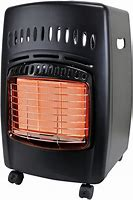Understanding Your Heating Needs
Choosing the right heater depends on various factors:
Room size Determine the square footage of the room to be heated.
Desired heat output How quickly and intensely do you want the room to warm up?
Budget: Consider your spending limit.

Safety concerns
Do you have children or pets?
Energy efficiency
Are you looking for a cost-effective option?
Aesthetics
Do you prefer a specific design or style?
Types of Heaters
Several types of heaters are available:
Fan heaters These are budget-friendly and heat up quickly, but they can be noisy and dry out the air.
Oil-filled radiators Known for even heat distribution and quiet operation, but they take longer to heat up.
Halogen heaters These provide instant heat but can be expensive and potentially unsafe if misused.
Ceramic heaters Combine the benefits of fan and radiant heaters, offering quick heating and quieter operation.
Convection heaters
Use natural convection to distribute heat evenly.

Safety First
Safety is paramount when using heaters:
Placement Keep heaters away from flammable materials like curtains, furniture, and pets.
Ventilation Ensure proper ventilation to prevent carbon monoxide buildup.
Overheating protection
Look for models with built-in safety features.
Child and pet safety
Use safety gates or barriers to prevent access for young children and pets.
Electrical safety Avoid overloading electrical outlets and using extension cords.

Energy Efficiency
To minimize energy consumption:
Choose the right size heater Avoid oversized heaters.
Utilize thermostats: Set the desired temperature and let the heater maintain it.
Insulate your home: Improve overall energy efficiency.
Consider energy-efficient models: Look for heaters with energy-saving features.
Additional Tips
Maintain your heater: Regular cleaning and maintenance ensure optimal performance.
Combination heating: Consider using a combination of heating methods for maximum comfort.
Alternative heating sources:
Explore options like electric blankets or heated clothing.
Best Heaters for Specific Needs
Small spaces Fan heaters or ceramic heaters are ideal.

Large rooms
Oil-filled radiators or convection heaters are better suited.
Bedrooms
Quiet options like oil-filled radiators or ceramic heaters are preferable.
Bathrooms
Use heaters specifically designed for bathrooms with waterproof features.
By carefully considering your needs and preferences, you can select the best heater to create a warm and cozy environment in your home.
FAQs
What is the best type of heater for my home?
The best heater for you depends on your specific needs and preferences. Consider these popular types:
Fan heaters Quick heating, affordable, but can be noisy and dry out air.
Oil-filled radiators Even heat distribution, quiet, but slow to heat up.
Halogen heaters Instant heat, portable, but can be expensive and potentially unsafe.
Ceramic heaters: Combines benefits of fan and radiant heaters, often quieter and safer.
How do I choose the right size heater for my room?
The size of your room determines the wattage needed. Generally:
Small rooms (up to 100 sq ft): 500-1000 watts
Medium rooms (100-200 sq ft): 1000-1500 watts
Large rooms (200+ sq ft): 1500-2000 watts
Are heaters safe to use?
Yes, heaters can be safe when used correctly. Always follow manufacturer’s instructions and safety guidelines:
Keep heaters away from flammable materials.
Use them on a stable surface.
Never leave heaters unattended.
Consider models with safety features like tip-over protection and overheat protection.
How can I save energy while using a heater?
Use the lowest heat setting needed.
Close doors to the room being heated.
Insulate your home to retain heat.
Consider using a programmable thermostat.
What are the safety precautions when using a heater?
Keep heaters away from curtains, furniture, and other flammable materials.
Never use extension cords with heaters.
Regularly inspect heaters for damage.
Turn off heaters when leaving the room or going to sleep.
Use heaters on a stable, flat surface.
Are there any energy-efficient heaters?
Yes, some heaters are more energy-efficient than others. Look for models with energy-saving features like adjustable thermostats and eco modes. Oil-filled radiators are generally considered energy-efficient.
Can I use a heater in the bathroom?
While some heaters are designed for bathroom use, it’s generally not recommended due to the risk of electric shock. If you must use a heater in the bathroom, ensure it’s specifically designed for bathroom use and follows safety guidelines.
How do I maintain my heater?
Regular maintenance extends the life of your heater:
Clean the heater regularly to remove dust and debris.
Check the cord for damage.
Store the heater properly when not in use.
To read more click here
